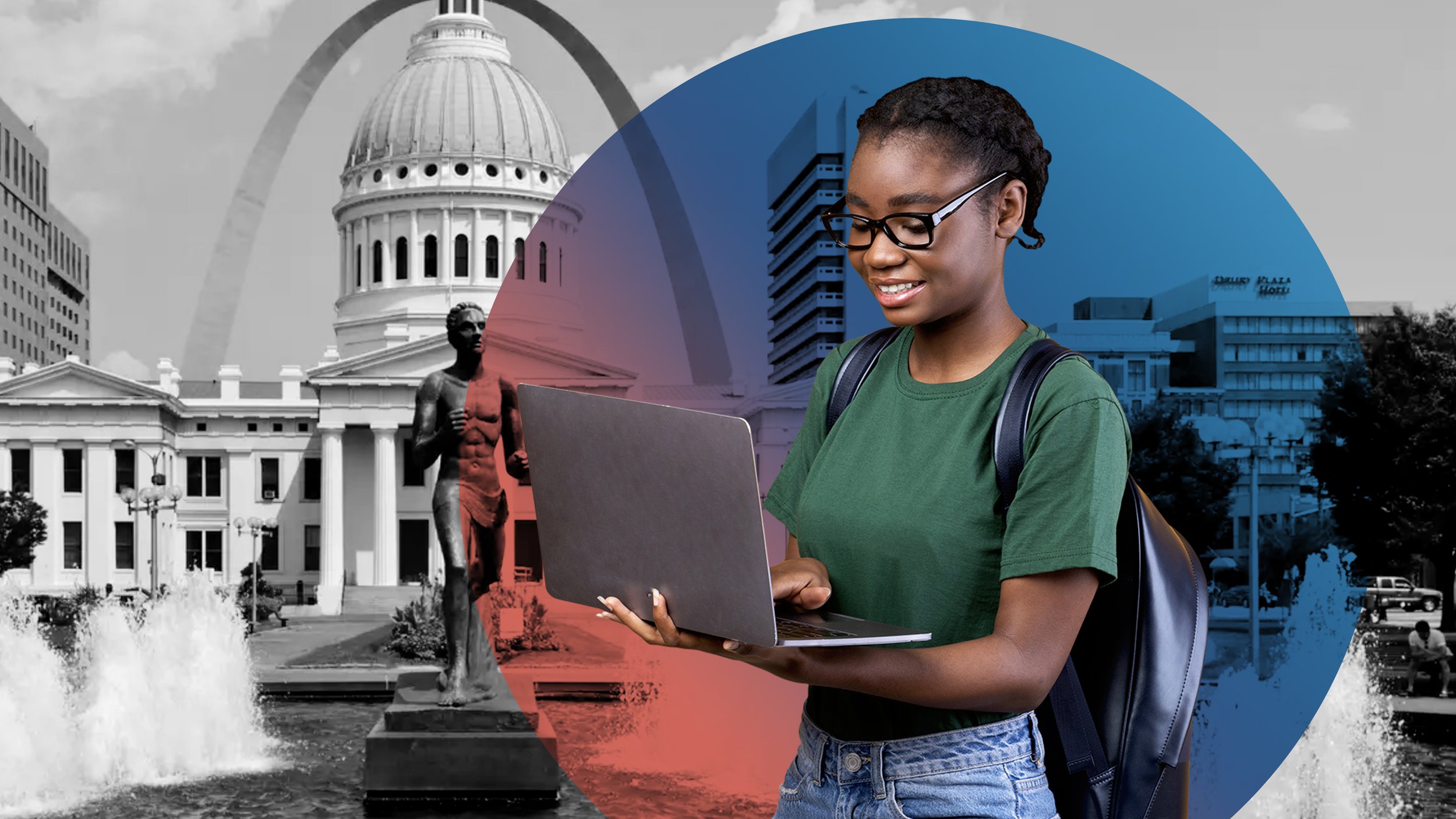
SCHOOL CHOICE FOR MISSOURI’S CHILDREN
AFC Missouri is the voice for school choice in the state of Missouri. We are dedicated to expanding school choice options for the benefit of our children. Join us in the fight for education freedom to ensure parents have the opportunity to choose what is best for their children.

At the Missouri Federation for Children, we believe that when funding for education follows students to the school of their choice, families win and students prosper. AFC Missouri seeks to empower families with the freedom to choose the best K-12 education for their child and advocates for state legislators to pass more programs that fund students, not systems.
MISSOURI SCHOOL CHOICE PROGRAMS
Although Missouri has several educational options for students, most of these programs aren’t funded in a way that gives broad access to school choice options.
Discover school choice options available to you now and help us pass greater choices to parents!
IN THE NEWS
SCHOOL CHOICE FACTS
School choice is a reality for more than half of the United States. For the few states that do not offer families the opportunity to send their children to a school that best fits their learning needs and values, some misconceptions may be standing in the way.
-
REALITY: Tax credit scholarship programs across the country, in the aggregate, have been proven to save state governments millions—even billions—of dollars. When a student attends a nonpublic school using a tax credit scholarship, state governments do not have to pay the public school the full cost of providing an education for that student. And the cost to educate a child in a traditional district school is greater than the revenue a state foregoes through scholarship tax credit programs. It’s no wonder that tax credit scholarship programs, for example, end up saving each participating state anywhere from $13 million to $120 million annually. So, not only do tax credit scholarships not harm public school funding, but they provide additional revenues that could be used to invest in kids in public school settings.
-
REALITY: The U.S. Supreme Court has ruled that appropriately designed private school choice programs are fully constitutional. And numerous state courts have upheld the constitutionality of tax-credit scholarship programs.
-
REALITY: Seventeen empirical studies examined academic outcomes for tax-credit scholarship recipients using random assignment, the “gold standard” of social science. Of these studies, 11 report positive test score effects among their primary findings. Four studies found no significant effects, and two found a negative impact in the early years of the study. School choice also leads to more students graduating from high school and enrolling in college, as we’ve seen in Milwaukee and Florida. In Florida, for example, tax credit scholarship students are up to 43% more likely to enroll in college than their peers in traditional public schools if they enroll in the program for four years or more.
-
REALITY: Public schools are an integral part of American society, and, in many cases, they offer a quality education. But public schools are not an ideal fit for every child—parents deserve a choice. All students can learn, and we believe they should all have the opportunity to do so in a safe and supportive school, chosen by their parents, that meets their individual learning needs.
Studies consistently demonstrate public schools benefit from the existence of scholarship tax credit programs. Twenty-one empirical studies examine private school choice programs’ impact on academic outcomes for non-participating students in nearby public schools. Of those studies, 20 found that private school choice improved the performance of nearby public schools; one found no significant effects of this competition
-
REALITY: All school choice programs have some level of administrative and financial accountability. And most programs have academic accountability. Private schools in every state must comply with health and safety regulations as well as anti-discrimination laws. For example, in Nebraska, approved and accredited private schools have testing standards, health and safety standards, and financial accountability standards, among other standards. And, in addition to all these requirements and regulations, private schools are accountable to those who matter the most: parents.
-
REALITY: Private schools often have just as diverse classroom settings as traditional public schools. Not every school needs to meet the needs of every student. In fact, that isn’t realistic. But what we do need is diverse schools all kids can access to meet their specific educational needs.
-
REALITY: Private schools are meeting the needs of a substantial number of students with special needs, and doing so without the funding mechanisms accessible to public schools. Education funding for students with special needs is complex, but it boils down to this: state and federal funding cannot follow a student to the school of their choice. This means all special needs education funding can only go to public schools. This places private schools at a disadvantage when educating children with special needs, especially those with the highest needs. Nevertheless, private schools are increasingly developing funding and programming to accept more children with special needs, as well as creating schools specifically tailored to serving certain populations of students with special needs. As studies show, about 12% of students in public schools have special needs, while about 7% of students in private schools have special needs.
-
REALITY: No reputable study shows that private school choice increases racial segregation. In fact, of the 10 studies using valid empirical methods to examine school choice and racial segregation, nine found that school choice creates more racially integrated classrooms; one found no significant effect on integration. And a 2016 analysis found the Louisiana Scholarship Program aids desegregation efforts in Louisiana. Moreover, most school choice advocates believe in the power of diverse schools and celebrate the fact that private school choice programs give kids from different socioeconomic backgrounds the opportunity to learn and collaborate together, helping them develop key skills for the 21st Century workplace.
-
REALITY: Public and private school choice are critically important to increasing education options for rural and suburban students. Students outside of major urban districts face real challenges due to population sparsity and school size, limiting many families’ high-quality educational options. More rural and suburban policymakers are embracing school choice as a way to bring new and better opportunities to their constituents.
DISCOVER SCHOOL CHOICE MISCONCEPTIONS
CAMELIA PETERSON
“It required a lot of sacrifices,” she said. “We didn’t have a lot of money by any means, but it allowed me to work at my own pace and I was able to graduate early.”




